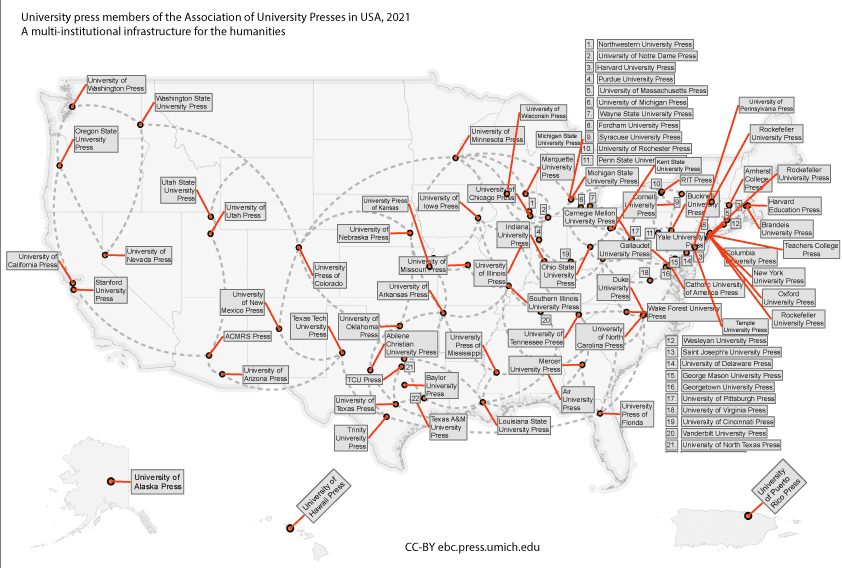About
The University of Michigan Press
The University of Michigan Press is a vital component of U-M Library's Michigan Publishing, which is the primary academic publishing division of the University. In partnership with our authors and series editors, we publish in a wide range of humanities and social science disciplines. We champion the Library's research and scholarly communication missions through our global digital and print publishing and distribution programs.
Together with our authors, we also play a critical role in the teaching and learning mission of the University by applying new pedagogies to the development of instructional materials that promote college success for students. To address the educational and information needs of our regional readers, the Press also produces publications on Michigan and the Great Lakes region.
The Press, with our rich history of publishing expertise, continues to lead in the development of digital scholarship and to support the dissemination of knowledge as widely and freely as possible.
University of Michigan Press Ebook Collection (UMP EBC)
The UMP EBC is a comprehensive collection of the University of Michigan Press’s scholarly ebooks for sale to libraries. The Press adds at least 80 titles annually. The UMP EBC is fully accessible on Fulcrum, a leading community-developed, open-source platform for digital scholarship developed by Michigan Publishing and the U-M Library. Fulcrum offers users the ability to read books with associated digital enhancements, such as 3-D models, embedded audio, video, and databases; zoomable online images, and interactive media. Explore open access titles at https://www.fulcrum.org/michigan.
Open Access for the Humanities and Qualitative Social Sciences
In the humanities, the monograph often acts as the lab where scholars experiment and engage with other thinkers. Despite the valuable ideas emerging from these fields, the academic community has struggled to find sustainable ways to make humanities monographs open access. Grant money and other funding is often less available to these scholars than to their counterparts in the sciences. As a result, the academic and publishing communities have had to explore new ways to make the turn to open. Fund to Mission from the University of Michigan Press is one such project to open the humanities.
The endeavor of opening humanities content to the world is a vital one. As the core places where work in these fields is done, monographs have the potential to be spaces that inspire dialogues and connections. When monographs exist only behind paywalls, there is less of an opportunity for global collaborations to happen. However, when these monographs become open access, new opportunities for interdisciplinary exchange emerge.
The University of Michigan Press has moved towards open access for its monographs precisely in order to provide these new opportunities for exploration. It exists within a network of university presses that are supported by their parent institutions and work together to provide the infrastructure of the humanities. Ensuring that everyone has access to the scholarship published by these presses, no matter where they are located or what their institutional affiliation is, can only strengthen our shared understanding of the beautiful diversity of culture, society, and identity.
[Map showing the over 100 university presses in the USA that are part of the Association of University Presses. It shows how they are connected with each other and form a networked infrastructure for the humanities. It is licensed under a CC-BY license, ebc.press.umich.edu]
Governance
The quality of the publishing program of the Press is assured through a rigorous peer-review process overseen by its faculty Executive Committee. The purpose of the Executive Committee is to approve (or decline to approve) projects for publication, proposed series, and proposed distributed clients under the University of Michigan Press imprint, advise the Press director on strategic directions, and serve as a productive interface between the Press, the University of Michigan, and the academic community more broadly. It is composed of nine voting members of the University of Michigan (Ann Arbor) faculty. The Executive Committee guidelines describe its operations more fully.
